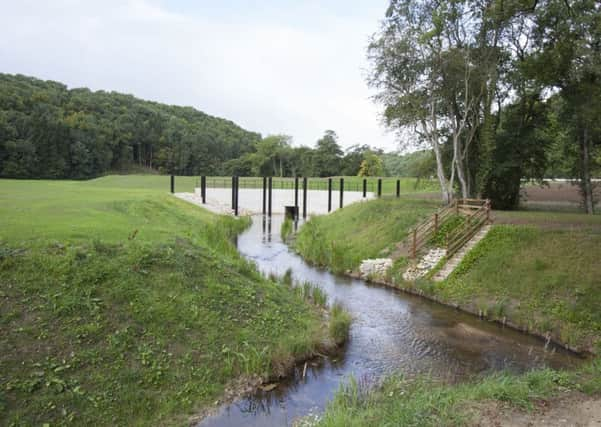Country Week '“ Flood defences must begin in countryside, writes Tom Richmond


Yet, like it or not, the two are inextricably linked – the Treasury’s coffers would be even more parlous without the UK’s thriving tourism, farming and food industries.
And let’s also hope that Mr Hammond remembers the occasion on January 2014 when he was harangued on national TV by a constituent indignant at the Government’s slow response to flooding in his Runnymede constituency in the Thames Valley – the then Defence Secretary became such a gibbering wreck who couldn’t get a word in edgeways.
Advertisement
Hide AdAdvertisement
Hide AdThis matters. Though occurrences of flooding are headline news when large towns and cities are at risk, especially those close to London, the countryside is on the frontline when it comes to preventative measures.
This was highlighted by an insightful Commons speech by Angela Smith, the Penistone and Stocksbridge MP. Ten years after Sheffield city centre was hit by Yorkshire’s 2007 floods, she’s been on a fact-finding trip to Holland where its low lying geography has forced policy-makers to be more pragmatic.
She reports that the Dutch system is “clear and accountable locally, regionally and nationally” – what a contrast to the buck-passing here between Ministers, councils and the Environment Agency – but that water is the starting point when it comes to “strategic, spatial and economic planning”.
In other words, issues like drainage and flood plains are considered at the outset and not regarded as after-thoughts. Furthermore, flood-risk management is based on a river’s whole catchment area to make the most of natural resources and better protect downstream communities, irrespective of artificial local government boundaries.
Advertisement
Hide AdAdvertisement
Hide AdAt last. The natural environment is a priceless asset when it comes to protecting the whole country’s economic infrastructure – Pickering’s ‘Slow The Flow’ project has proved this and mini-dams are now being considered for the Calder Valley’s upper reaches.
That way, flood defences on the outskirts of towns might be able to withstand rising water and not be ruined, with the resulting costs to the economy. All it requires is for Mr Hammond to make a belated link between town and country.
Tom Richmond is Comment Editor of The Yorkshire Post.